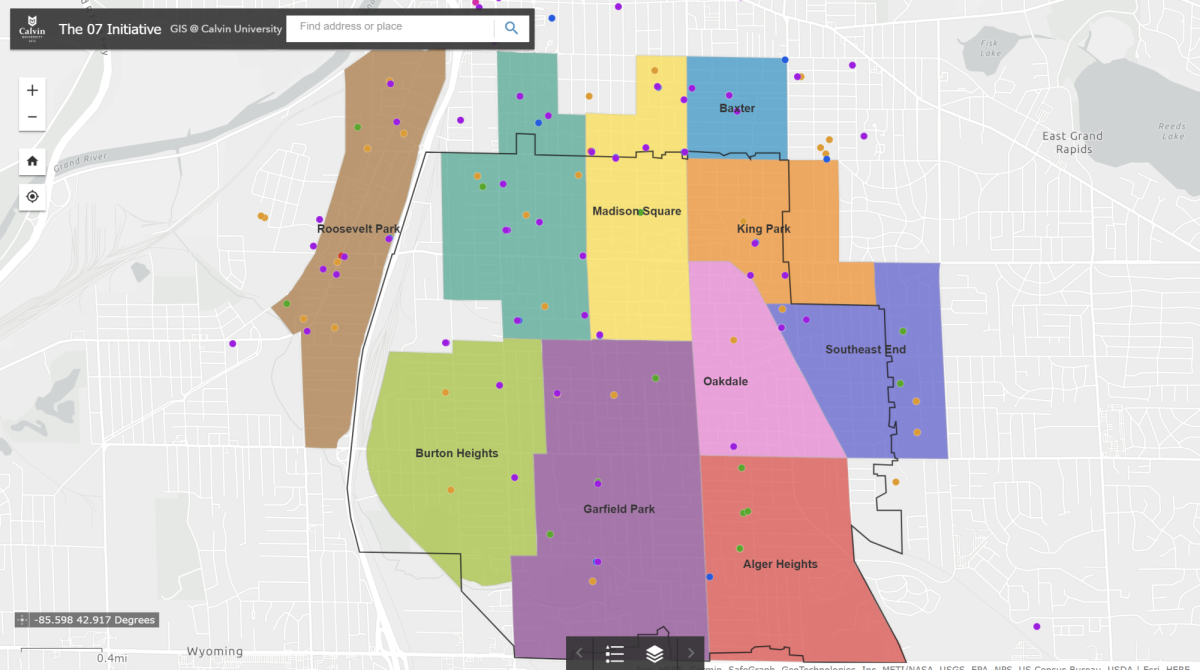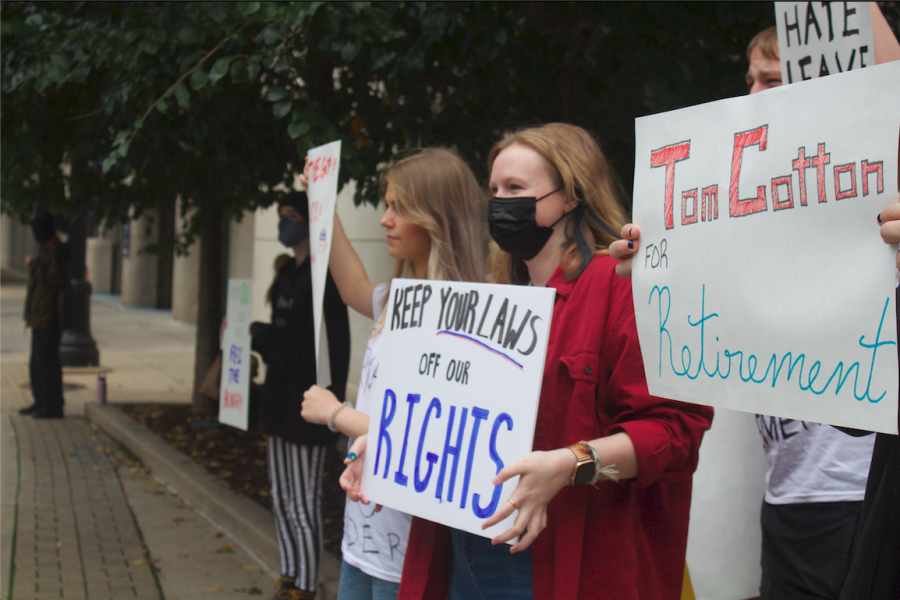When Carol Manos got a local wild cat spayed to prevent her own cats from getting pregnant, she wasn’t expecting it to turn into her life-long vocation.
But eight years later, Manos is the proud founder of Carol’s Ferals, a local nonprofit organization whose mission is “to end feline overpopulation in West Michigan through community education and empowerment.”
Manos’ main method of ending feline overpopulation is through a procedure called TNR: trap, neuter or spay and return. Manos said this is a procedure in which feral, or wild, cats are trapped, fixed and then returned to where they were found.
“I don’t want to just help one cat,” Manos said. “My goal is to be preventive in ending overpopulation. So by fixing one, I circumvent many cats from coming into the world homeless.”
Manos said Carol’s Ferals wasn’t created intentionally. After Manos bought a trap to catch and spay one local cat in the neighborhood, the community started taking notice.
“I bought my own trap, and someone found out that I had it and it just turned into this bigger thing,” she said. “I started doing a lot of trapping myself, and I bought a couple other traps. People started giving me money here and there, although most of the money was my own in the beginning.”
Eventually, the organization took off, growing larger and larger. Started in February 2006, Carol’s Ferals has spayed and neutered more than 7,000 cats, Manos said. In the past year alone, they have fixed over 800 cats, preventing 2,400 homeless cats from potentially being born.
Manos said she enjoys helping the feline population as well as the community.
“People need help with this,” Manos said. “I liked the way it made me feel, not just helping the animals, but because it’s a ‘good for the soul’ kind of thing; there is a payoff.”
In addition to TNR services, Carol’s Ferals also has cats up for adoption, Manos said.
“Originally I just wanted to do TNR and it would be easy,” Manos said. “But then you get the friendly kittens, and you get the friendly cats, and you don’t want to put them back out there.”
Manos said more than 500 cats have been adopted into homes in the past eight years. Although offering adoption services takes a lot of resources, the effort is worth it in the end because they spread the word about TNR services, Manos said.
Carol’s Feral’s website and Facebook page are full of success stories from those who have adopted.
Emma Van Kooten found her dream cat, Marco, through Carol’s Feral’s. After finding Marco on a pet finder site, she set up an appointment with Manos to start the adoption process.
“There was a video of him lying in a sink and purring that absolutely melted my heart,” Van Kooten said. “When I walked through the door to meet the cats, Marco was the first one to walk up to me. I knew it was meant to be.”
Not only did Carol’s Ferals help her find the perfect match, but they did so in an orderly and loving way, Van Kooten said.
“It was obvious that the volunteers at Carol’s were passionate about the work they did,” Van Kooten said. “Not only was the facility well kept, but they knew each cat’s name and each of their individual personalities — they really had a heart for what they did.”
While Carol’s Ferals has found success through adoption, Manos stresses the importance of TNR first and foremost.
“The goal is to stop the problem in its tracks,” she said. “You can’t adopt your way out of this overpopulation problem, but you can take preventative measures.”
Manos said euthanization rates are decreasing, awareness is increasing and community among like-minded organizations is starting to form.
“All of the organizations are starting to get together,” Manos said. “We are in a coalition called the West Michigan Network for Animal Protection.”
Manos said the coalition’s first event, “Share the Love,” will take place on Dec. 14 at Delta Subaru located at 6025 28th St. The coalition consists of six animal organizations: The Humane Society of West Michigan, Kent County Animal Shelter, C-Snip, Vicky’s Pet Connection, Carol’s Ferals and Reuben’s Room Cat Rescue.
Manos is hopeful about the spread of TNR efforts and its benefit to the West Michigan feline population.
“Shelters are even starting to look at [their procedures] differently,” Manos said. “Instead of just taking a feral cat, trapping it and euthanizing it, they’re starting to trap, spay or neuter and put it right back where it came from.”








